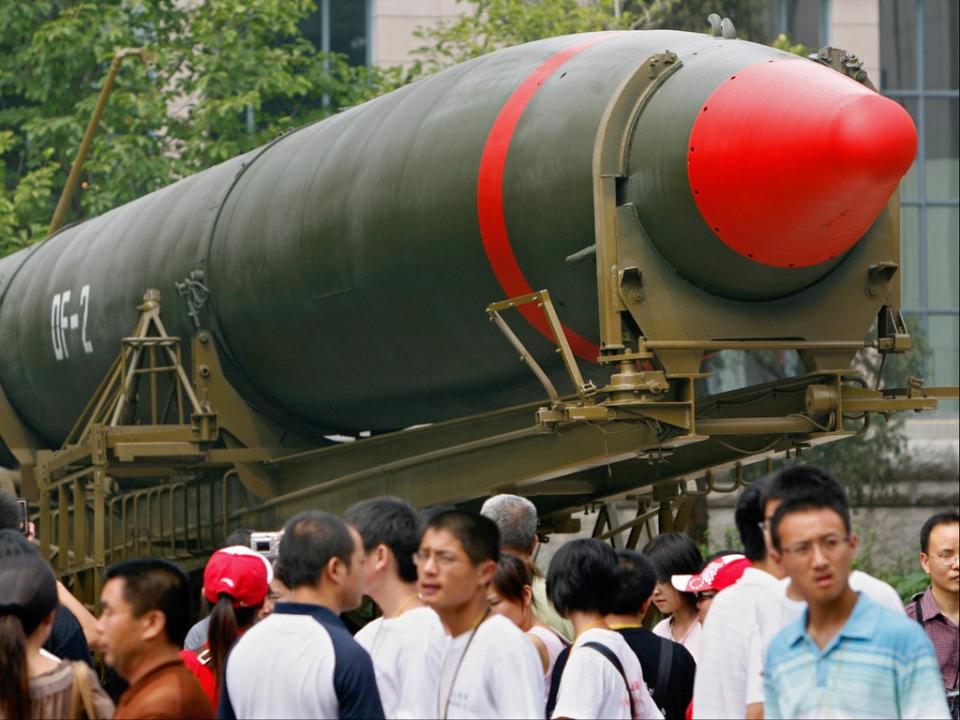NATO chief urges China to join arms control talks, amid fears Beijing is ramping up nuclear capabilities

The head of NATO has urged China to join international treaties which limit the growth of nuclear weapons, warning Beijing’s arsenal is rapidly expanding.
Jens Stoltenberg, the secretary-general of the military alliance, said more countries needed to be included in future arms control talks, not simply the United States and Russia.
"As a global power, China has global responsibilities in arms control. And Beijing, too, would benefit from mutual limits on numbers, increased transparency, and more predictability," Mr Stoltenberg said at NATO’s annual arms control conference.
"These are the foundations for international stability."
Mr Stoltenberg warned China was building a large number of new missile silos, which would “significantly increase” its nuclear capability.
“All of this is happening without any limitation or constraint. And with a complete lack of transparency."
The US under Donald Trump pulled out of the 1987 Intermediate-Range Nuclear Forces treaty in 2019, accusing Russia of breaking the rules of the pact.
The treaty banned ground-launched cruise missiles with a range between 500km and 5,000km.
Russia has denied it broke the rules, but as the pact fell apart, China continued to build weapons banned by the measure and has shown little sign that it’s inclined to join in future arms proliferation talks.
Although the true scale of China’s nuclear arsenal is not known, international observers estimate it has between 100 and 400 nuclear warheads.
The country officially had adopted a policy of having a minimal nuclear deterrent and “no first strike” policy, promising it would never use nor threaten to use nuclear weapons against a non-nuclear state and would only ever fire back after first being attacked.
Last year, China was invited to join the New START treaty between Russia and the US which binds the two countries to halve their nuclear stockpiles.
However, Beijing refused, arguing its own nuclear forces were small in comparison to the two former Cold War giants and as such it was unnecessary to attempt to wind them down.
In January, shortly after Joe Biden took office, American and Russian officials agreed a deal to extend New START for a further five years, until 2026.
China is however a signatory to the Nuclear Non-Proliferation Treaty, in which the five formally-declared nuclear weapons states agreed to try to stop any other countries from acquiring them.

